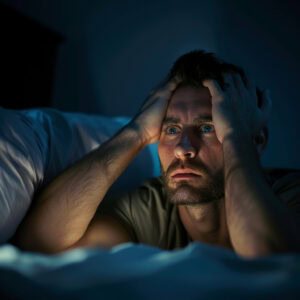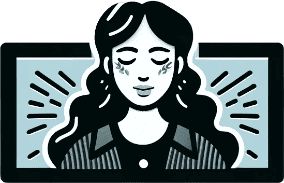Sunshine can feel like a warm hug from the universe, making us happy and energized. But while we often hear about the dangers of too much sun, it’s crucial to remember that some sunlight is actually good for us. Imagine feeling more cheerful, having stronger bones, and boosting your immune system—all by simply enjoying a bit of sunshine. Intrigued? Let’s dive into why balanced sun exposure is essential for our health and how to get just the right amount.
Quick Takes: Why we need some exposure to the sun
- Boosts Vitamin D: Essential for bone health and immune function.
- Enhances Mood: Can help reduce symptoms of depression.
- Improves Sleep: Regulates your sleep-wake cycle.
- Supports Immune System: Helps fend off certain diseases.
- Natural Source of Light: Can improve overall wellbeing.
Dr. Sarah Brown, Dermatologist: “Moderate sun exposure is key. It’s about finding a balance where you benefit from the sun without increasing your risk of skin cancer.”
Getting Enough Sun Without Getting Too Much
Here are some practical tips to find that perfect balance:
- Time it Right: Mid-morning or late afternoon sun can be less intense. Those are good times to try safely getting enough sunlight. Mid-morning is about 10:00 AM to 11:30 AM, and late afternoon is about 3:00 PM to 4:30 PM.
- Gradual Exposure: Build up your sun exposure slowly to allow your skin to adapt. For example, 5 minutes one day, 10 minutes the next, 15 minutes the day after that — up to 30 minutes maximum a few days later.
- Take Breaks: Even if you build up to 30 minutes of direct exposure per day, hit pause to spend some time in the shade and give your skin a rest. For example, maybe you spend 10 minutes in the sun, followed by 10 minutes in the shade before returning back to direct sunlight. Again, aiming for only that 30 minutes maximum of direct sunlight exposure.
- Direct Sunlight: For optimal Vitamin D production, brief exposure to direct sunlight is best. However, always pay attention to your skin and avoid overexposure.
- Stay Hydrated: Drink plenty of water to keep your skin and body hydrated.
- When to Use Protection: While brief sun exposure (10-30 minutes) is important for Vitamin D, consider applying sunscreen and wearing protective clothing like hats, long sleeves, and sunglasses if you plan to be out longer. The balance is key—short, unprotected sun exposure followed by protection is often recommended.
- Shade Options: If you are sensitive to the sun or it’s very intense, getting some indirect sunlight (e.g., under a shade tree) can still be beneficial, though not as effective as direct sunlight for Vitamin D.
How to know you might be getting too much sun
- Redness: If your skin starts to turn pink or red, it’s a sign that you’ve had enough sun. This indicates that your skin is beginning to burn.
- Warmth: Skin that feels warm or hot to the touch can be an early indicator of sunburn.
- Tingling or Itching: A tingling or itching sensation can be a sign that your skin is reacting to too much sun.
- Dryness: Excessive dryness or a tight feeling in your skin suggests that it’s starting to suffer from sun exposure.
- Discomfort: Any general discomfort or pain in the skin area exposed to the sun is a warning sign.
Dr. Mark Lee, Medical Researcher: “Vitamin D deficiency is a global issue, and sensible sun exposure is a simple solution to this problem.”
Consequences of Not Getting Enough Sun Exposure

Without enough sun, you might experience some of the following problems:
- Mood Disorders:
- Seasonal Affective Disorder (SAD): Lack of sunlight can lead to SAD, a type of depression that occurs at certain times of the year, usually in winter when daylight hours are shorter.
- General Depression: Sunlight exposure boosts serotonin levels, which can help improve mood and reduce the risk of depression.
- Sleep Problems:
- Disrupted Sleep-Wake Cycle: Sunlight helps regulate your circadian rhythm, the internal clock that signals when to be awake and when to sleep. Insufficient sun exposure can disrupt this cycle, leading to sleep disorders like insomnia.
- Weakened Immune System:
- Without adequate sun exposure, your immune system may not function optimally, making you more susceptible to infections and illnesses.
- Bone Health Issues:
- Rickets in Children: This condition, caused by Vitamin D deficiency, leads to soft and weak bones in children.
- Osteomalacia in Adults: Similar to rickets, osteomalacia causes bone softening in adults, leading to pain and fractures.
- Cardiovascular Health:
- Some studies suggest a link between low Vitamin D levels due to insufficient sun exposure and an increased risk of cardiovascular diseases, including hypertension and heart disease.
- Cognitive Impairment:
- There is evidence to suggest that low levels of Vitamin D might be associated with cognitive decline and an increased risk of neurodegenerative diseases like Alzheimer’s.
- Poor Skin Health:
- Sunlight can help treat certain skin conditions, such as psoriasis, eczema, and acne. Lack of sun exposure might worsen these conditions.

Did you know..?
- UVB Rays are blocked by windows. You need UVB rays for Vitamin D, so keep this in mind.
- UVA Rays are not blocked by windows. UVA rays cause skin aging and long-term damage. That’s why you need sunscreen even while indoors.
Girl Friday says…
I’ve noticed that a short walk during my lunch break not only refreshes my mind but also helps me sleep better at night. One dash of a little exercise, and add in a sprinkle of direct sunlight. It’s like one of mother nature’s little recipes for health!
Alternatives to sun exposure
If getting outside is tough, here are some alternatives:
- Vitamin D supplements: These can help, especially in the winter.
- Diet: Foods like fatty fish, fortified dairy products, and egg yolks.
- Light therapy lamps: Mimic natural sunlight, useful in darker months.
More things from other places
Let’s Wrap It Up
Embrace the sunshine, but do it wisely. A little bit of sun can make a big difference in your health, mood, and overall wellbeing. By finding a balance, you can enjoy all the benefits without the risks. So go ahead, step outside, and let the sun work its magic!


Leave a Reply